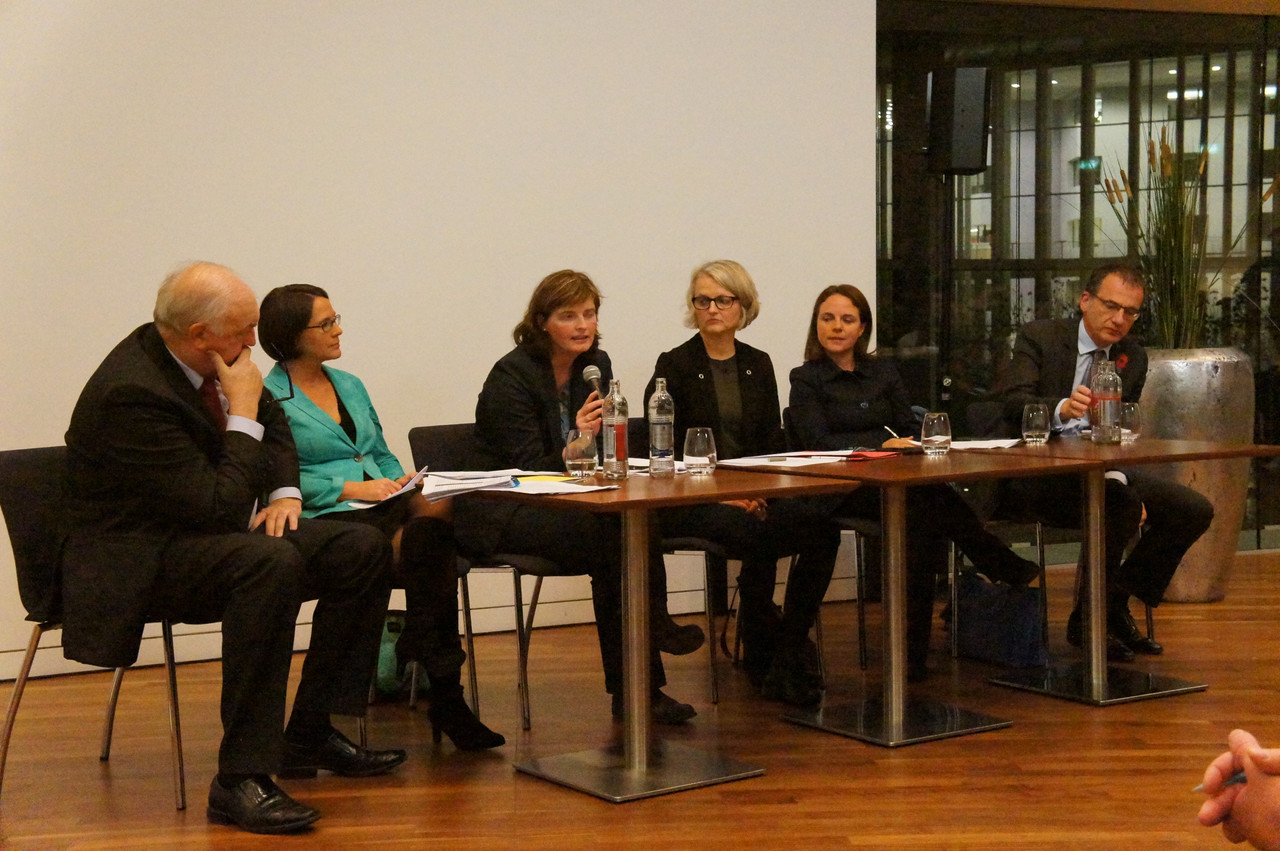On Wednesday 8 November, the advocacy group Brill (British immigrants living in Luxembourg) invited British ambassador John Marshall, the head of the representation of the EU commission Yuriko Backes, Luxembourg minister for integration Corinne Cahen and MEP Charles Goerens to talk about citizens’ rights after Brexit.
Fiona Godfrey, chair of Brill, said Brits living in the EU had been in limbo for the past 500 days. Some issues had been settled between the Brexit negotiators on pensions and healthcare, but many others were outstanding. She was worried about the commission proposals to limit freedom of movement to the country of residence.
This would mean that Brits would not be able to provide cross-border services anymore. A Brit living in Germany and working in Luxembourg could not continue doing this after Brexit, for example. A Brit offering services in several EU countries would only be able to do this in the country of residence, losing vital business.
Family reunification would be made harder and professional qualifications would not be recognised anymore. Godfrey said they were “caught in a no-man’s land” and argued that there were “no good guys in this, except the European Parliament.”
The overwhelming consensus in the packed room was that “Brexit was a disaster”. The short speeches were followed by a barrage of questions, ranging from the cut-off dates for EU citizens to apply for settled status to how long the British government can survive and what would happen in a no-deal scenario.
One British citizen living in Luxembourg, whose parents were from Uganda, noted that the Luxembourg department of immigration had denied them a five-year visa because “of the uncertainties of Brexit.” He noted that Brexit already had an impact on his family.
Commission warnings
Backes underlined the challenges that the negotiations faced and argued that citizens’ rights were a “bit of a moving target.” She stated that the situation was different for EU citizens living in the UK and UK nationals in the rest of the EU. Of those 1.2 million UK citizens, most are retired, and only half a million were employed in the EU.
She stressed again that the EU did not want Brexit, and that the timetable was a real challenge: “By October next year, we need an agreement, which must then go through the ratification procedures in member states.”
The head of the EU commission representation in Luxembourg said that Brexit was already a lose-lose situation, and that the EU absolutely wants an orderly withdrawal.
A question by a member of the public on whether the EU commission was moving backwards in its positions on citizens’ rights was confirmed by Godfrey, who said that Brill was initially much more optimistic, but that it seemed there was now a “salami-slicing of the rights” because there was “frustration about the lack of progress in UK offers”, and that the UK government was “completely unprofessional.”
Attempts at reassurance
Both Goerens and Marshall sought to reassure the approximately 200 people who attended the event.
Marshall stressed that he had met several times with Brill and was feeding back their concerns to Department for Exiting the European Union (DExEU), so that they may have as good an understanding as possible of the concerns of Brits living in the EU. He hoped that a deal on citizens’ rights would be done by December so that talks could start on a future relationship.
The British ambassador argued that there had been progress on certain issues, such as healthcare and social security. He explained that the UK had made an offer for lifetime rights for settled status for EU citizens living in the UK, which was going beyond EU law. He added that “in return, we want freedom of movement for UK nationals in the EU across the EU 27”, but this offer has not yet been taken up.
Marshall also said that the discussions in the UK focused mostly on EU nationals in the UK because “it is within our gift” to give them rights, while the onus was on the EU to give Brits in the EU rights. He reiterated the British positions that the European Court of Justice would become a foreign court after Brexit, and jurisdiction had to end, and that EU citizens’ rights on family reunification would finally be the same as those for British citizens.
When asked whether an EU national would be able to move in 4 or 5 years’ time to the UK without any problems, Marshall said they would fall under the new immigration law.
Goerens said the European Parliament would have the last say on any agreement, and that the EP was the “watchdog” for both EU citizens in the UK and UK citizens in the EU.
Wrily remarking that none of these problems would exist if the UK decided to stay in the single market, he also noted that there were other models available, such as the Norway or the Swiss models, which could be an inspiration for the future relationship between the EU and the UK. “We should stay positive.”
Godfrey finished with a passionate speech about those Brits who made their lives in various EU countries, who had taken full advantage of European citizenship and were true Europeans. She argued that if there is a time to stand up for those who are European citizens, now is the time.
